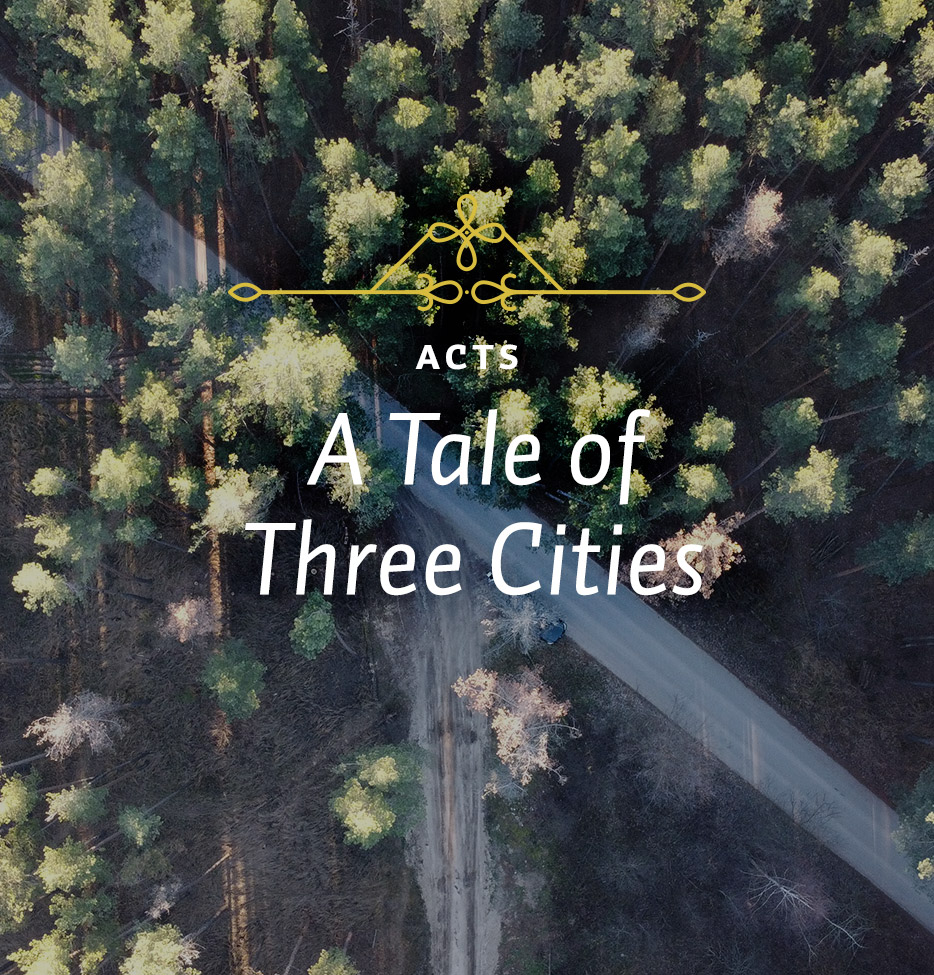At the end of yesterday’s study, we said there was a puzzle over where an ancient boundary marker seemed to lie compared with what Luke had written in Acts. It was thought that the ancient marker was between the cities of Lystra and Derbe, which would have put them in a different province. And yet, Luke indicated a different boundary. Today we begin by looking at this puzzle.
When Luke wrote Acts 14, he said that the apostles left Iconium and fled to “the Lycaonian cities of Lystra and Derbe,” thereby putting Lystra and Derbe in the same province. In other words, Luke differed from the apparent evidence and was therefore assumed to be wrong.
Ramsay had been brought up on the liberalism of the nineteenth century. He did not doubt that Luke had made a mistake. He was retracing Paul’s steps, studying the cities he visited and the roads he walked, trying to understand not only where Paul went but why he went where he did.
When he got to Lystra and Derbe, he discovered that there was indeed an ancient boundary stone between the two cities, suggesting that they had been in different provinces. But here is the interesting thing: he also discovered that the stone had been moved. It wasn’t where it had been originally. This stimulated his imagination, and he began to investigate the matter more carefully.
Today, if you read his book Saint Paul the Traveller and the Roman Citizen and get to his account of Paul’s ministry in these cities, you will find him pointing out that once again Luke is remarkably accurate. This is because, as Ramsay discovered, Lystra and Derbe were in the same province, the province of Lycaonia, between the years A.D. 37 and 72, but not before those dates and not afterward. That is, they were in the same province in the very years Paul was there, as Luke accurately reports.1
The account of the work in Lystra contains the report of a miracle (vv. 8-10). Someone may say, “But isn’t that contrary to what you said earlier? You said that when Paul and Barnabas went into a city, they always preached first and did the miracles (if any) afterward. Here we start with the healing of a crippled man.”
Actually this is no exception, because when we come to verse 9, we read: “He [that is, the man who is going to be healed] listened to Paul as he was speaking.” In telling the story, Luke begins with a reference to this man since he wants to tell about the healing. It led to the other events he is going to tell about. But the work of the apostles did not begin with the healing, as he makes clear. It began with their speaking. In other words, in Lystra Paul did the same thing he always did: he went into the city and began to preach. While he was preaching he noticed the lame man, who was giving great attention to what he was saying, perceived that he had faith to be healed and so healed him.
When Paul passed to this area, he must have passed into an area where he no longer understood the language. In the ancient world, almost everyone spoke Greek, even if it wasn’t their native language. Greek seems to have been the dominant language at Antioch and Pisidia. But here in Lycaonia the people seem to have been more at home in their native tribal language. For when the miracle took place and the people began to babble to themselves about it, Paul and Barnabas did not understand at first what was going on. They noticed that the people were impressed. But when the people said in their own language, “The gods have come down to us in human form” (v. 11), Paul and Barnabas did not understand what they were saying.
So the apostles were proceeding on their way, not really understanding what was going on, when they came upon a procession moving out of the city toward them. A priest was leading an animal that had been made ready for sacrifice. The apostles must have said to themselves, “We must have come here on a feast day, a religious day. They are practicing their pagan rites. We will have to speak to them about this in due time.” But then they discovered to their horror that the people were coming to do sacrifice to them. And why to them? Because they believed, as we discover, that Barnabas was Zeus in human form. Zeus was the greatest of the gods. And Paul, who was the chief speaker, was presumed to be Hermes or Mercury, the gods’ spokesman.
1 W. M. Ramsay, St. Paul the Traveler and the Roman Citizen (London: Hodder and Stoughton, 1895), 110-113.






